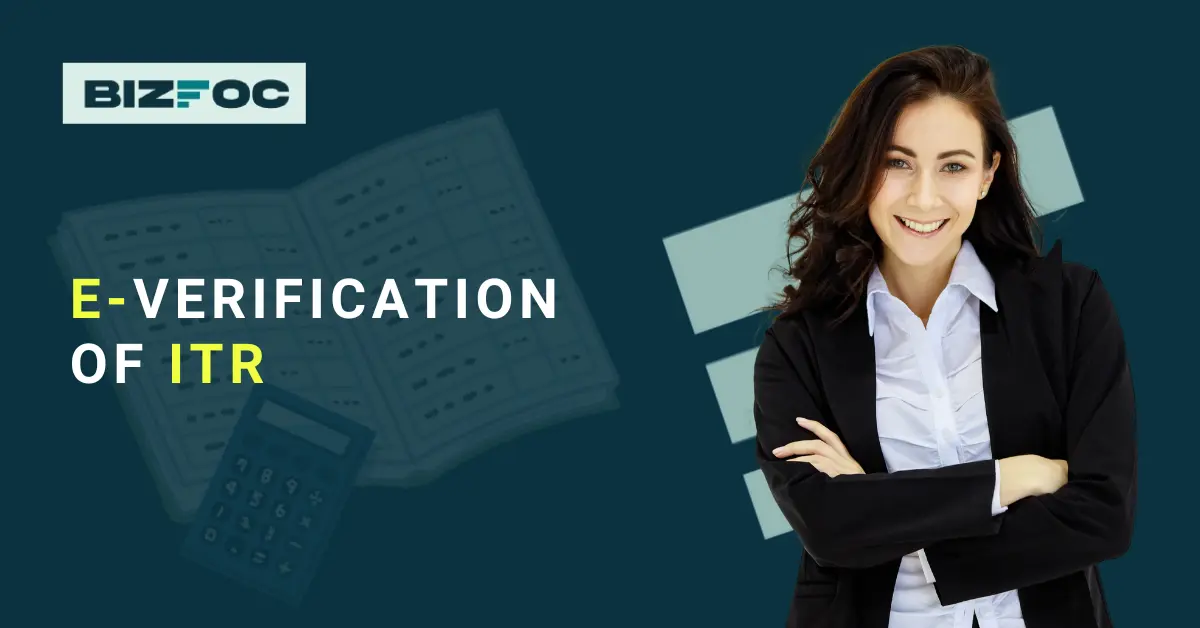
Overview
Did you know ITR would be invalid once you completed its e-verification? It is a crucial step required to complete ITR filing, without which the ITR could be rendered invalid. Under its flagship program, Digital India, launched in 2015, the Income Tax Department enabled the facility of e-verification of ITR. This initiative provides a solid digital infrastructure, offering ease and convenience by eliminating the tedious practices of traditional ITR verification.
Continue reading to learn about the meaning of e-verification, the documents required, various ways to fulfill e-verification, and the processes to complete ITR e-verification.
What Does the E-Verification of the ITR Mean?
ITR e-verification is a swift and safer online process to validate the information supplied in the ITR by the assessee. It replaces the old manual process of sending physical copies of ITR to the IT Department, making the process convenient and faster for the processing center.
When an assessee files a copy of ITR on the Income Tax Department's online portal, the return is thoroughly checked. If any discrepancies or inconsistencies are found, a notice for verification is sent to the assessee, requiring verification in one of the methods allowed by the IT Department. The e-verification of the ITR must be completed within 30 days from the date of submission. Failure to do so may render the ITR unacceptable and could result in penalties under the Income-Tax Act, 1961.
Requisite for ITR E-Verification
- A valid user ID and password pre-registered on the online IT portal;
- Filed and submitted ITR for the relevant assessment year either by himself or through an authorized ERI (Electronic Return Intermediary);
- For verification through DSC, a valid Digital Signature Certificate;
- Aadhaar linked with PAN number for Aadhaar-based verification;
- Bank Account EVC/Demat Account EVC with net banking facility enabled for EVC-based e-verification.
Methods for E-Verification of ITR Online
E-Verification Using Aadhaar OTP
- Go to the Income Tax online portal and sign into your account.
- Start with e-verification of ITR through Aadhaar-based OTP and click Continue.
- Agree to authenticate Aadhaar Details via OTP. Once OTP is generated, submit the OTP received on the mobile number and validate.
- On successful completion of the e-verification, a transaction ID will be received with a success message.
E-Verification Using the Digital Signature Certificate (DSC)
- Go to the Income Tax online portal and sign into your account.
- Click on e-Verify Return for ITR.
- Select the option to verify ITR through DSC and click Continue.
- If not already installed, download the emsigner utility. If available, tick the mark and install the emsigner utility as applicable.
- Fill in the provider certificate and password details on the Data Sign page, click on Sign, and the process will be completed.
E-Verification Through Electronic Verification Code (EVC)
- Go to the Income Tax online portal and sign into your account.
- Click on e-Verify Return for ITR.
- Choose EVC Generation through Net Banking and click Continue.
- Select your bank from the available options to complete e-verification.
- Read the Disclaimer and click Continue. You will be redirected to the bank's net banking page.
- Sign in to the bank account and choose the e-filing post option. You will be redirected to the Income-Tax Portal website and then to the e-filing panel.
- Sign in to the IT Portal, select the e-file option, and click E-Verify Return to complete the process.
E-Verification Through EVC Generation Using Bank Account
- Go to the Income Tax online portal and sign into your account.
- Click on e-Verify Return for ITR, select EVC generation through the bank account, and click Continue.
- Once EVC is generated, the code will be received on the validated mobile number and the Income Tax portal online.
- Enter the EVC generated through the email address and the phone number registered on the portal, and click verify to complete the verification process. The assessee will receive a notification for a successful transaction.
Conclusion
E-verification of the Income Tax Return is an efficient, effortless, and expedient procedure that ensures the accuracy and completeness of the information supplied in the return, while providing the assessee with a timely and hassle-free experience. If you have any queries regarding ITR e-verification or need assistance, refer to BizFoc, which has professional expertise and years of experience handling ITR-related matters.
About the Author
CA Nayani Agarwal

All India Rank - 24
Nayani Agarwal is a Chartered Accounting who scored All India rank - 24 & 22 in CA final and CA intermediate respectively. She also scored an India rank - 21 in the Company Secretary foundation. She has overall 10 plus experience in banking and financial services. Her areas of expertise is startup consultancy, ESOP, Income Tax, GST, corporate Compliances & import expeort consultancy.
